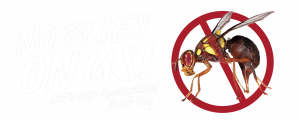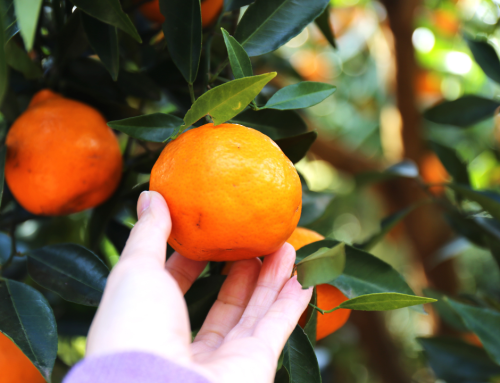Fruit fly on the move
During September the weather warms up and Queensland Fruit Fly (QFF) activity increases in urban areas and then moves into rural areas. Optimum weather conditions for survival into spring is for September to receive above-average rainfall and above- average maximum and minimum temperatures. This situation occurred in the winter of 2016 which resulted in extremely high spring, summer and autumn QFF populations across central and northern parts of Victoria.
Weather impacts
Weather patterns forecast for September 2020, provided by the Bureau of Meteorology show a very high chance ( 75 – 80 % ) of higher than the normal rain for September ( 25 – 50 mm ). This means adult QFF that survived the winter will have an abundance of food (bacteria and fungi) due to the wet weather.
Maximum temperatures for September are forecast to be average ( 15 – 18 ̊C ) and minimum temperatures may be slightly higher ( 60 – 65 % chance ) than average ( 3 – 6° C ).
A study of the region’s temperatures shows March and April rain was historically generally higher than average, indicating QFF adults were able to survive the approach of the oncoming winter. It is likely that adults will have found warm refuges on the landscape before June, July and early August, when minimum and maximum temperatures were lower than average.
Control activities for rural
locations
Rural locations that are further than 1km away from built up areas will experience fewer QFF impacts during September and October than urban areas. Populations will increase to damaging levels in rural areas in December 2020 and January 2021. Current control activities for commercial growers include:
- Deploy and maintain fruit fly traps and monitor weekly
- Ensure supplies of trap lure replacements, baits and pesticides are on site, or have been ordered
- Ensure unused on-site lures, baits and pesticides are still within their use-by dates and approved for use against QFF in your crops in your state
Vigilance required
If vigilance is not maintained as we enter spring, through trapping and fruit inspection and control measures are not in place, we can expect flies that survived winter to find host fruit resulting in population explosions in
December 2020 and January 2021. Control measures such as host removal, baits, netting, pruning, windfall clean-up and approved pesticides will limit the havoc wreaked in commercial orchards and home gardens through population explosions.




